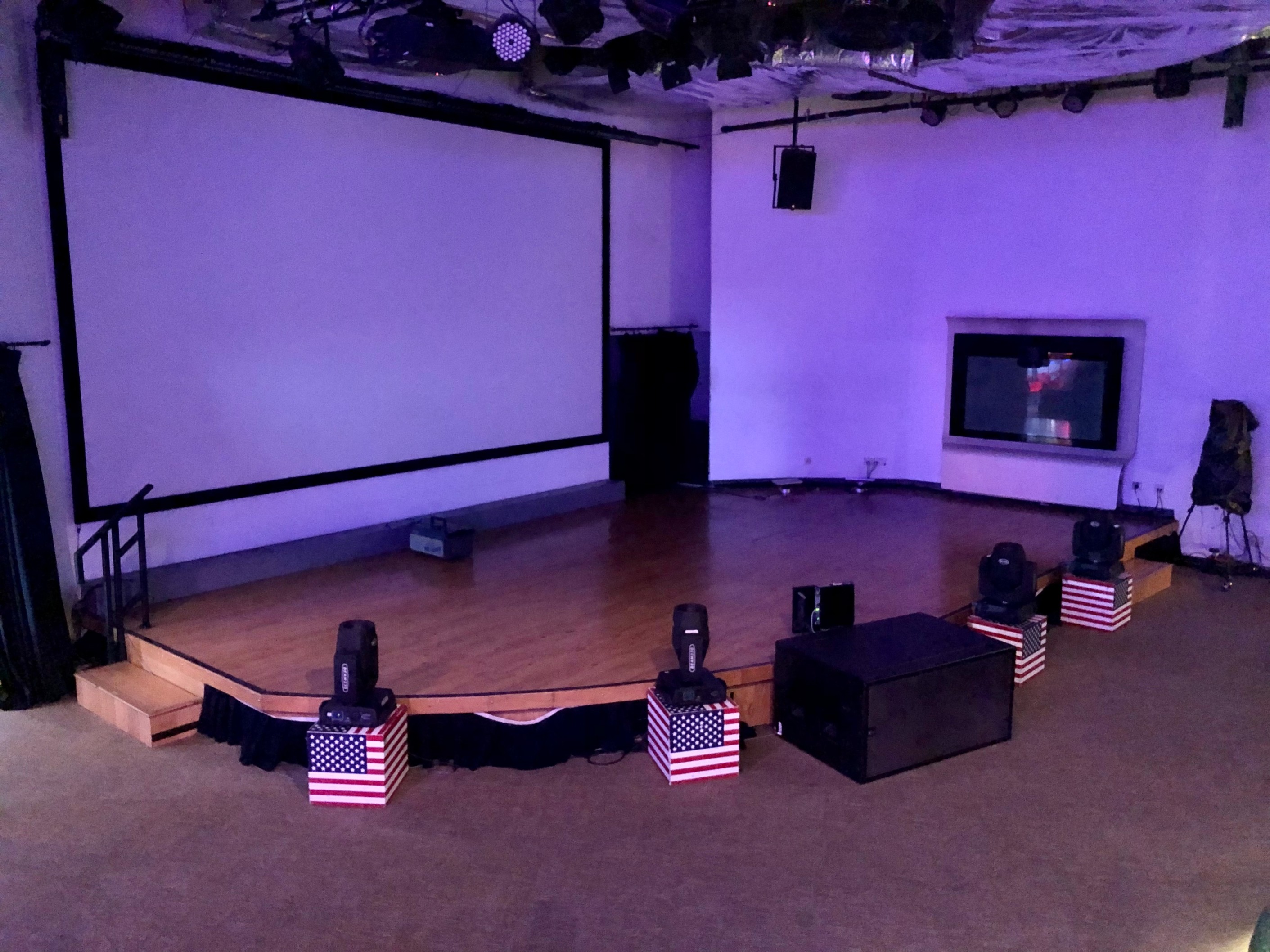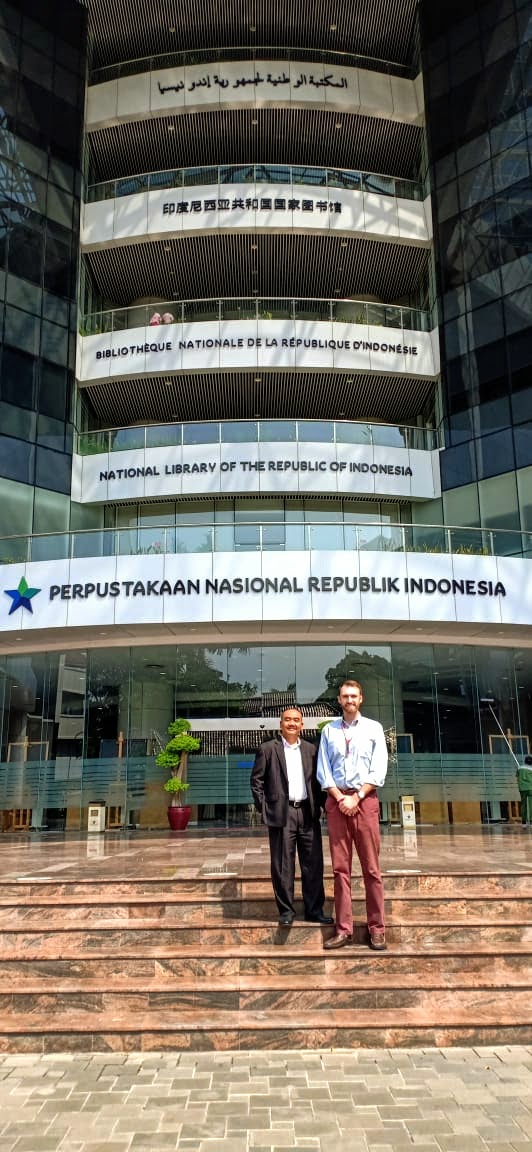IX. Internationalism in Law
“The life of law has not been logic: it has been experience.” Most first-year American law students encounter this quote from Justice Oliver Wendall Holmes at some point, but I didn’t expect it to reappear in an Indonesian Constitutional Court decision about an election law. As I wrap things up here in Indonesia and start thinking about home (read: school), I can’t help but note an interesting incongruity between Indonesia and the United States: the degree to which the international community influences law and society. With Indonesia hosting the G20 summit this fall as it pursues greater global leadership, it’s a good time to discuss how much the Indonesian system incorporates non-Indonesian legal thinking.
The United States has always baffled me in being at once insular and self-obsessed, yet composed of nothing but decades of work by immigrants and foreign-born residents. It’s a bit of an old tune at this point, but its worth repeating for a comparison to Indonesia. A robust and complex indigenous society was all but destroyed by British, French, and Spanish colonists, who imported enslaved Africans by the millions. After some three centuries of colonization, warfare, and instability, an uneasy and unfair society of Europeans, formerly enslaved Africans, and brutalized Native American communities lived in an independent and increasingly more powerful nation that stretched across a continent. Successive decades of immigration, predominantly from Western and Central Europe but also from Latin America and Asia, shaped U.S. society to incalculable degrees, scrambling everything from language and cuisine to state populations and political alliances. The story continues well into the twentieth and twenty-first centuries, with citizens from the Arab world, South America, Southeast Asia, and Northern Africa outpacing white-majority country migration, and a short walk through most major cities reveals this history, in all its glory and horrors.
But you wouldn’t necessarily know this from our legal practice. Beyond the last names of judges, court decisions and doctrines rarely allude to non-U.S. sources. In fact, if a party is drawing on foreign sources it’s usually viewed as a soft admission that their argument lacks substance, where substance means American caselaw. This intuitively makes sense; domestic caselaw should probably win the day in a domestic court. And American courts are fortunate enough to draw on a continuous body of jurisprudence and legal theory over two centuries old. Most developing nations don’t have a modern judiciary nearly that old, and many developed countries have endured regime changes that unsettled existing law and government, even though they have had sophisticated court systems that often predate U.S. independence. Regardless, U.S. courts have something of a stigma against non-U.S. sources, a stigma that is not shared in Indonesia.
As I’ve discussed previously, Indonesia has very different history of pluralism and independence than the United States. Indonesia is not a nation of immigrants. The Europeans who colonized (the Dutch) Indonesia never remade Indonesia in their image, and there are few Indonesians that can trace heritage beyond the archipelago. The various ethnicities that make up Indonesia have centuries of distinct cultural and social history that were ignored by colonization and then balanced/oppressed by Indonesian independence leaders and later dictatorships. Because of this, individual communities within Indonesia has histories far older than the United States, but what one might call “modern” Indonesia is quite young. The Constitutional Court, for instance, is only two decades old, as is Indonesian democracy as a whole. Practically speaking, there’s just not that much homegrown expertise on many areas of law. In a way, Indonesia has an inverted experience compared to the United States: law, politics, and nationhood developed conterminously in America, while in Indonesia they each have dramatically different starting points. As such, sometimes the best solution in Indonesia, at least in theory, is to look outside the country.
Indonesian judges readily turn to international examples to make their point in a decision. This is especially true in cases that deal with elections, government systems, and broader considerations of democracy. I’ve read several decisions that appeal to the U.S. presidential system as a benchmark for measuring Indonesian executive power, the Electoral College to defend laws that restrict direct elections for president, and the supremacy clause of the Constitution to justify limitations on regional power (despite American federalism’s extreme deference to state-level power). Some justices even make direct references to U.S. Supreme Court decisions, like the quote I began this piece with. They rarely do this for specific legal doctrines, but the canon of quotable dicta that can be used to defend most any court decision are very popular with Indonesian judges who are usually reluctant to announce consistent tests or standards.

Indonesian legal thinkers have certain love of the American system because of its presidentialism, but judges are even more likely to incorporate jurisprudence from members of the Association of Asian Constitutional Courts, which incorporates high courts from across Asia and into Europe. The Indonesian Court houses the secretariat of the AACC, a position the clerks proudly introduced me to. The AACC hosts a website that participating courts populate with their court decisions, and it seeks to build collaboration between judges and staff through professional and academic workshops and conferences. As one clerk explained, South Korea and Japan have played an outsized role in fostering constitutional study among Asian constitutional courts, and sometimes their decisions are used almost as a template for courts handling similar constitutional issues. Acknowledging the historical and development differences between the two, this institution underscores the contrast between how American and Indonesian jurists approach legal questions.
The openness to non-Indonesian sources goes deeper than just Constitutional Court decisions, however. The Indonesian Constitution draws heavily on the United States’ for governmental powers, with Articles 1 and 2 of the U.S. Constitution forming the basic skeleton of Indonesian executive and legislative powers. Even further, several articles of the Indonesian Constitution that guarantee human rights are directly lifted from the UN Declaration of Human Rights.

When you read Court decisions on how these rights apply, you can quickly see that the Court is unwilling to give them their full weight, but its nonetheless notable that in reestablishing Indonesian democracy reform leaders decided to include so many outside influences in direct ways. This dynamic of starting with a foreign source and then making half-use of it was less a bug and more a feature of many Indonesian constitutional provisions and laws I encountered. At play in much governmental and judicial decision-making is an initial appeal to “experts,” which older and more established democracies are viewed as, but with a reluctance to fully implement what’s being cited. For instance, the Declaration of Human Rights provisions on free speech are textually robust, but the Court gives them authority that is far from what other democracies provide. As you read the decisions, there’s a distinct sense that the justices shrug their shoulders and apply a jurisprudence that is more in line with how they see Indonesian culture, rather than adhering to the rather clear promises of the text. One might say this is the providence of a high court, and I suppose it is, but it often speaks to the failings of Indonesian constitutionalism. Form tends to rule over function.
Still, for this entry I am more concerned with how Indonesian policymakers and judges reach their outcome, and it continually surprised my American training to see so much credence given to foreign references. In the end, I think it tends to produce a more informed and worldly set of laws, and on election matters I believe the United States could benefit from more inspection of other systems and how they handle electoral disputes. And in other areas of law that inherently involve regional and global impact, like trade and environment, understanding and incorporating ideas from other legal systems is likely to be more and more valuable as globalization and international considerations demand a more inclusive jurisprudence.